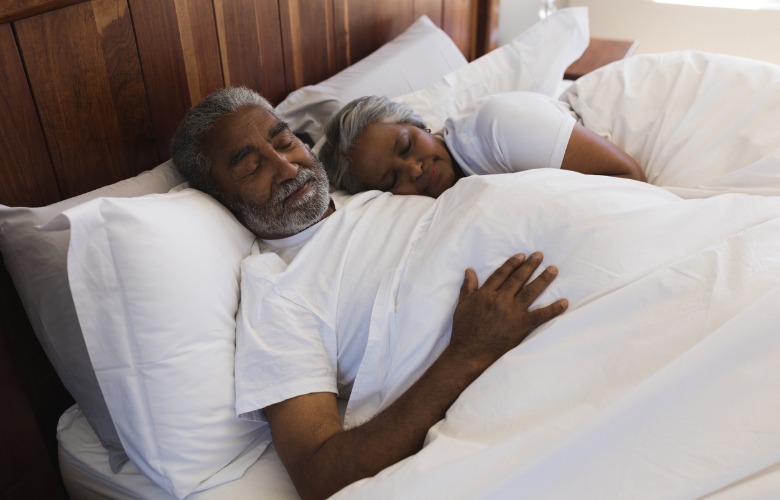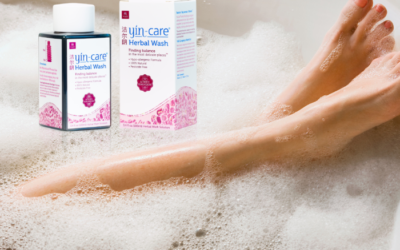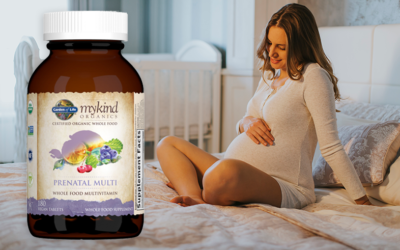Passiflora Combination and Sleep
Let’s take look at the herbs that make up Passionflower Combination from Genestra. Along with descriptions, uses and research of each herb, I’ve added the hierarchical structure which Chinese herb formulas use to understand a formula. The concepts of King, Assistant, and Deputy herbs work well for this sleepy formula to understand it as a whole.
Passionflower(Passiflora incarnata) Whole Herb Extract (1:1) 0.26 ml / 255 mg
If this were a Chinese formula passionflower would be the King herb. The King spearheads the functions of the formula and uses the other herbs to further its actions.
What It Is
Genus name Passiflora comes from the Latin “passio” meaning passion and “flos” meaning flower. Passiflora incarnata is the hardiest of the species and is found in Brazil, the tropical Americas, Asia, and Australia. It is easily cultivated in the southern United States and is often found as a wildflower. The passionflower vine is a tendril-climbing vine. It grows rapidly, a single vine can easily grow 15 feet in a season. Passionflowers are known for their elaborate fringed flowers sporting white petals, sepals, and a central crown of pinkish-purple filaments. Due to the unique structures of their blooms, passionflowers require live pollinators. Spanish Christian missionaries of the 15th and 16th centuries saw these unique blooms as symbols of the crucifixion of Christ. The common name for Passiflora incarnata is Maypop. This name refers to the loud popping sound made when fruits are stepped on. The fruits are fleshy, egg-shaped, and edible. The Cherokee name for this vine is Ocoee.
Traditional Uses
Insomnia, anxiety, depression, hypersensitivity to pain, headaches, agitation, transitioning from addictions, tics, hiccoughs, overstimulation, herpes simplex virus prevention, stress-induced hypertension, menstrual cramps, circular thinking.
Research
All tucked up in bed and counting too many sheep? That first fall into slumber can be elusive. Passionflower can help with that. Rats helped researchers determine this ability. After taking an extract of Passiflora, the rat had their brains were monitored for nine hours. Researchers concluded the herb was asleep inducer when getting to sleep was a problem. (1)
Mice helped researchers determine Passiflora did much more than just get a person, mouse or rat to sleep. Sleep suffers when circadian rhythms are out of balance. This can be caused by aging, chronic jet lag or working the night shift. Circadian rhythms play a part in physical, emotional and mental well being. Data analysis concluded passiflora incarnata had a positive effect on circadian rhythms of the liver and cerebrum. The mice had both an easier time getting to sleep, staying asleep and had longer sleeps. (2)
A human trial showed even a low dose of Passionflower tea can help with mild insomnia. This double-blind, placebo-controlled, had forty-one participants aged 18-35 years. The Dosage was one cup of passiflora tea for a week. After a week of no tea, they were given a placebo tea for a week. Sleep quality showed a significantly better rating for passionflower compared with placebo.(3)
Overview
Passiflora Incarnata influences all aspects of sleep. It helps you get to sleep, stay asleep and sleep longer.
Hops (Humulus lupulus) Strobile Extract (1:1) 0.18 ml / 180 mg*
Hops is the Assistant herb to King Passionflower. The role of Assistant is to reinforce and moderate the King herb.
What It Is
Hops are the dried flowers of the Hop (no s) vine. It is climbing vine using strong hairs on its stems or bines to aid ascent. A hop vine can reach up to 22 feet in height. The leaves are heart-shaped with finely toothed edges. Hop has both male and female flowers. The flowers of the male plant are not cultivated. Only the female flowers, the hops, are used for medicinal purposes. These flowers, the hops, are also called strobiles and resemble small yellow-green pine cones. Hops are commonly associated with beer. The resins from hops normalize bacterial growth and contribute to the fermentation process.
Traditional Uses
Anxiety, insomnia, nervousness, mild sedative, beer.
Research
This year (2019) researchers asked: “how does hops work for insomnia?” Once the mouse data was in, the results pointed to two actions. First that hops are cooling or hypothermic, this alone is sleep-inducing. Second that hops activates melatonin receptors.(6) Melatonin is the hormone that regulates the sleeping and waking cycle.
Hops were popular this year. Another 2019 study used a variety of methods to isolate and study the natural constituents of this herb. From their work researchers formulated a chart with the main constituents and their health effects. The following is a list of the most common effects: anti-inflammatory, antioxidative, antimicrobial, promotes gastric secretion (digestion), inhibits tumors, promotes cancer cell death, sedating, receives common menopause symptoms, reduction of proliferation, inhibition of tumor growth-promoting gastric acid secretion, antimicrobial effects, reducing inflammation-reducing inflammation, cardioprotective, neuroprotective, gene protective.(7)
Overview
Hops is a mild sedative that also protects and supports the various systems of the body through cellular health and anti-microbial actions. Hops is an all-around good ally.
Skullcap (Scutellaria lateriflora) Whole Herb Extract (1:1) 0.18 ml / 180 mg*
Skullcap serves as an Assistant to the King herb.
What It Is
Skullcap is a hardy, marsh loving, perennial member of the mint family. The plant grows in height to 2-3 feet. Informally called “Scute”, it sports blue tubular flowers along its stems. In 19th America, skullcap was known as“mad dog” because of its ability to heal rabies in animals and humans. Other names are hoodwort, quaker bonnet, helmet flower, European skullcap, greater skullcap, American skullcap, blue skullcap, blue pimpernel, hooded willow herb, side-flowering skullcap, mad-dog weed, and mad weed. It is related to the Chinese herb Huang Qin.
Traditional Uses
Cherokee and other Native American tribes used skullcap to maintain good health in the female reproductive system. Other uses are rabies, hysteria, nervous tension, epilepsy, myotonic spasms, and neuralgia.
Research
A study from 2013 affirms Skullcap’s effects on the body and the mind. It is well established that oxidative stress can cause anxiety and depression. Researchers found that the flavonoids in Scutellaria lateriflora had strong anti-oxidative properties and protected the DNA from oxidative stress. Oxidative stress plays a vital role in neurodegenerative and neuropsychiatric diseases such as anxiety, Alzheimer’s disease, depression, and Parkinson’s disease. Compounds in Skullcap neutralize free radicals suppressing oxidative stress. (8)
Overview
Skullcap may not be a sleep aid per se, but it is a good right-hand herb. Sweeping away and neutralizing toxic free radicals which contribute to anxiety and depression.
American Basswood (Tilia americana) Flower Extract (1:1) 0.09 ml / 90 mg*
This herb is a Deputy. Although similar to the King herb, it addresses underlying conditions.
What It Is
Tilia americana refers to the fragrant flowers of the American Basswood tree. A tall tree with heart-shaped leaves, it grows to 50-80 feet. It is also called American Linden or Lime.
Traditional Uses
Basswood flowers have a two-fold effect. They work on the respiratory system and the nervous system. Respiratory uses include colds, fever, flu, sore throat, bronchitis, and coughs. The nervous system uses include hypertension, digestive complaints associated with anxiety, and migraine. Other members of the Tilia genus are used for sedative properties, as well as pain relief and to create a cooling sweat.
Research
More than a sedative, Tillia flowers are anti-seizure. The antioxidants in the flavonoids in Tillia Americana contribute to the flower’s anticonvulsant actions. Extracts of T. Americana var. Mexicana significantly prevented severity induced seizures and reduced oxidative stress levels. The flavonoids found were quercetin, rutin, and isoquercitrin.(9)
Overview
American Basswood flowers represent a small percent of this formula. They reinforce relaxation though the central nervous system and reduce inflammation.
St. John’s Wort (Hypericum perforatum) Aerial Parts Extract (1:1) 0.05 ml / 45 mg*
St. John’s Wort serves as an Assistant to King Passionflower. It helps Passionflower address underlying conditions. Together all the Assistants St. John’s Wort, Skullcap, and Hops form a synergistic sleep trio.
What It Is
Hypericum perforatum is creeping herbaceous plant about 3 feet high. Named “perforatum” because its leaves and petal appear perforated. The leaves have tiny lighter dots and the bright yellow flower petals are dotted with black. Crushed flower buds or seed pods produce a reddish/purple liquid. The name St. John’s Wort references the common harvest time of the summer solstice in late June, around St. John’s Feast Day on 24 June. “Wort” is olde English for the plant.
Traditional Uses
In 13th century Europe St. Johns Wort was used to ward off evil spirits, harm, and sickness. Hang some flowers on your house and stall doors on St John’s Feast Day, and you are good to go! Other ancient uses were sciatica, malaria relief, snake bite, female tonic, and diuretic. Current medical uses include depression, anxiety, fatigue, insomnia, heart palpitations, menopause, moodiness, ADHD, OCD, and SAD. Topically it is used for minor skin irritation, burns, and eczema.
Research
Both St. Johns Wort and Passiflora help menopause symptoms. The original purpose of this study was to compare the effects of Hypericum Perforatum and Passion Flower, on menopause symptoms. The findings showed both herbs equally produced a significant decrease throughout the third and the sixth weeks of study (p < 0.05). The symptoms used were vasomotor signs, insomnia, depression, anger, and headache. (10)
St. John’s Wort is commonly known as a remedy for depression. Another study asked, “how does it work?” After extensively reviewing the available research the author concluded the mechanism is unknown. “It is more likely that the multiple bioactive compounds the crude plant extract contributes to the antidepressant in a complex manner.” (11)
Overview
Hypericum perforatum is included in a small overall amount. Included to soothe any excess menopausal, depression or anxiety issue in its inimitable mysterious way.
Passiflora Combination is a perceptive formula. If sleep is often difficult and there is chronic jet lag or night shifts in the past, this is a good formula to try. Jet lag does not have to involve jets. Young parents who regularly are not allowed to sleep through the night can be jet-lagged. Additionally, if menopause is an issue Passiflora Combination has you covered. This applies to older men as well, as male hormones fall so too does sleep. If insomnia comes with or because of anxiety or depression, this formula is a good choice. Sleep well.
Passiflora Combination adult serving size:
Take 15 drops one to three times daily with water, 30 minutes before meals, or as recommended by your healthcare practitioner.
Disclaimer
Use herbs wisely. If you have questions or special considerations, work with your practitioner. If symptoms worsen or you have concerns, contact a knowledgeable practitioner. These statements have not been evaluated by the Food and Drug Administration. These products are not intended to diagnose, treat, cure or prevent any disease. Please check for interactions if you are taking any medications and intend to ingest herbal products.
References
1 Fructuoso Ayala Guerrero and Graciela Mexicano Medina, Effect of a medicinal plant (Passiflora incarnata L) on sleep, Sleep Science, 2017 July-Sept.
2 Kazuya Toda, Shoketsu Hitoe, Shogo Takeda, Norihito Shimizu, and Hiroshi Shimoda Passionflower Extract Induces High-amplitude Rhythms without Phase Shifts in the Expression of Several Circadian Clock Genes in Vitro and in Vivo, International Journal of Biomedical Science. 2017 Jun; 13(2): 84–92.
3 Ngan A., Conduit R., A double-blind, placebo-controlled investigation of the effects of Passiflora incarnata (passionflower) herbal tea on subjective sleep quality. Phytotherapy Research. 2011 Aug;25(8):1153-9.
4 Lohani M., Ahuja M., Buabeid MA., Dean S, Dennis S., Suppiramaniam V., Kemppainen B., Dhanasekaran M.,.Anti-oxidative and DNA protecting effects of flavonoid-rich Scutellaria lateriflora, Natural Product Communications, 2013 Oct;8(10):1415-8.
https://www.ncbi.nlm.nih.gov/pubmed/24354189
5 Noemí Cárdenas-Rodríguez, María Eva González-Trujano, Eva Aguirre-Hernández, Matilde Ruíz-García, Aristides Sampieri, III, Elvia Coballase-Urrutia, Liliana Carmona-Aparicio, Anticonvulsant and Antioxidant Effects of Tilia americana var. mexicana and Flavonoids Constituents in the Pentylenetetrazole-Induced Seizures, Oxidative Medicine and Cell Longevity, 2014; 2014: 329172.
https://www.ncbi.nlm.nih.gov/pmc/articles/PMC4147264/
6 Butterweck V1, Brattstroem A, Grundmann O, Koetter U. Hypothermic effects of hops are antagonized with the competitive melatonin receptor antagonist luzindole in mice. Journal of Pharm Pharmacol. 2007 Apr;59(4):549-52.
7 Maša Knez Hrnčič, Eva Španinger, Iztok Jože Košir, Željko Knez, Urban Bren2, Hops Compounds: Extraction Techniques, Chemical Analyses, Antioxidative, Antimicrobial, and Anticarcinogenic Effects, Nutrients 2019 Feb; 11(2): 257.
8 Lohani M, Ahuja M, Buabeid MA, Dean S, Dennis S, Suppiramaniam V, Kemppainen B, Dhanasekaran M., Anti-oxidative and DNA protecting effects of flavonoid-rich Scutellaria lateriflora, Natural Product Communication. 2013 Oct;8(10):1415-8.
9 Noemí Cárdenas-Rodríguez, María Eva González-Trujano, Eva Aguirre-Hernández, Matilde Ruíz-García, Aristides Sampieri, III, Elvia Coballase-Urrutia, Liliana Carmona-Aparicio, Anticonvulsant and Antioxidant Effects of Tilia americana var. mexicana and Flavonoids Constituents in the Pentylenetetrazole-Induced Seizure, Oxidative Medicine and Cellular Longevity, 2014; 2014: 329172.
10 Fahami F, Asali Z, Aslani A, Fathizadeh N. A comparative study on the effects of Hypericum Perforatum and passionflower on the menopausal symptoms of women referring to Isfahan city health care centers, Iranian Journal of Nursing and Midwifery Research. 2010 Fall;15(4):202-7.
11 Butterweck V. 257902780_Mechanism_of_Action_of_St_John’s_Wort_in_Depression
CNS Drugs, 2003;17(8):539-62.

A licensed acupuncturist since 1999, Diana lives and works in Santa Cruz, California. Her practice focuses on pain management, stress reduction, and creating health. A longtime friend of plants, she loves the herbal side of Traditional Chinese Medicine. Diana shares her herbal interests through writing and a card game she designed and illustrated: Herb Apocalypse*. Volunteer work includes The Rabbit Haven, a rabbit rescue, and Livity Rising, free community healing clinics. Author of Herb Apothecary: The Coloring Book: 54 Chinese Herbs available on Amazon.



